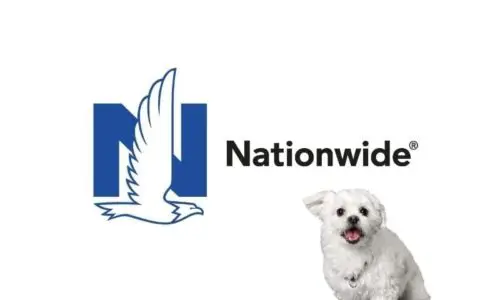Nationwide’s Whole Pet and Major Medical plans reimburse you a direct percentage of your vet bill; they don’t cover hereditary conditions, congenital disorders or alternative therapies such as acupuncture or chiropractic care.
Embrace’s accident and illness policies cover more things, with wellness coverage to lower your annual deductible. Discover our plans to see if they fit with you!
Accident and Illness Coverage
Nationwide Pet Insurance Company is one of the oldest and largest pet insurers in the US. Their customizable plans help pet parents find coverage tailored specifically to their pets’ needs and budgets; additionally they offer money back guarantees and multipolicy discounts.
Nationwide’s Whole Pet and Major Medical policies both offer comprehensive coverage for hereditary conditions, cancer, digestive issues and dental disease as well as dental coverage and access to a 24/7 vet helpline. However, these plans do not extend coverage for pre-existing conditions – which refers to illnesses or injuries your pet had prior to becoming eligible for coverage under their policy.
The Major Medical plan covers fewer health problems than its Whole Pet counterpart, leading to lower premiums. Furthermore, this policy excludes hereditary conditions like hip dysplasia and heart disease as well as having a 12-month waiting period for cruciate ligament injuries.
Embrace’s wellness plan, available as an optional addition to their Major Medical policy, covers routine and preventative veterinary care, grooming and training costs without annual limits for certain treatments such as vaccinations. Available to dogs and cats six weeks old or older as well as rabbits, ferrets and guinea pigs.
Behavioral Coverage
Nationwide’s Whole Pet and Major Medical policies both cover behavioral issues, providing you with reimbursement for behavioral therapies like training, aversion therapy, operant conditioning or any other modification techniques used for behavior modification.
The company offers two pet health insurance plans and two Wellness Plans. You can add either of them for routine care such as vaccines and flea/heartworm medication coverage; unlike most plans however, money in this account doesn’t roll over for later use.
Nationwide’s Whole Pet and Major Medical plans both feature an annual deductible of $250 as well as 24-hour access to its Vethelpline, making this plan great for people with multiple pets as they can call and get advice when their animal becomes ill or injured. Unfortunately, however, Major Medical excludes hereditary conditions and developmental disorders while Whole Pet covers these as well as adding hereditary condition riders but this takes one year. Other companies cover behavior issues more comprehensively including Trupanion who offer add-on coverage for behavioral treatment as well as SPOT who offers options in terms of deductible, annual payout rates, co-pays etc for each plan offered under its insurance plans.
Congenital & Hereditary Coverage
Nationwide’s pet insurance policies work on a reimbursement basis, so you pay your veterinarian up front and are then reimbursed after submitting all appropriate paperwork. They offer plans with coverage limits from $2,500 up to unlimited coverage options.
Some of their plans, like the Modular plan and Whole Pet policy, offer hereditary and congenital coverage – medical conditions present from birth or that arise due to developmental abnormalities during gestation or early childhood – while other companies exclude this coverage, increasing premiums significantly.
Other companies such as Embrace provide comprehensive hereditary and congenital coverage with each accident and illness policy, although enrollment must occur by age ten for your pet to qualify. As this may make coverage harder to secure for older pets with conditions not identified before then; preexisting issues won’t be covered either, which is one reason some owners opt not to enroll their animals with Embrace.
Cruciate Coverage
Nationwide’s Cruciate Coverage provides reimbursements for hereditary conditions such as hip dysplasia, as well as more common illnesses like cancer. Furthermore, it covers dental procedures like root canals and extractions; although some exclusions apply such as geriatric care or cosmetic surgery.
Nationwide Pet Insurance’s advantages include 24/7 virtual vet care through its VetHelpline app, worldwide coverage and reimbursement of eligible veterinary expenses after fulfilling a $250 annual deductible. Plans begin at $25 monthly but the price may change depending on factors like location, pet age/breed combination and coverage selection.
Nationwide offers optional wellness coverage that provides routine checkups, vaccinations, prescription pet food and supplements coverage and prescription pet food as part of its plans. Most plans typically go into effect 14 days after you submit an approved application with payment; most plans have age restrictions between 8 weeks to 8 years old with Major Medical and Modular plans offering limited annual limits per condition and its Whole Pet plan providing unlimited annual coverage respectively.
Modular Coverage
Nationwide offers several pet insurance plans, such as Whole Pet and Modular. The latter plan offers coverage similar to a Lemonade base policy with accident, illness and wellness coverage as well as optional add-ons like behavioral therapy, prescription food or alternative therapies.
Most commonly, injuries and illnesses covered by pet health plans include fractures, ear infections, allergies and cancer. Hereditary and congenital disorders are also covered. While preexisting conditions may be excluded from coverage initially, they can sometimes be reinstated with medical records showing it had been treated prior to starting your plan. Unfortunately, pet plans don’t cover grooming/boarding fees, tax fees/record access/copying fees, bank or credit card fees etc – although these can still be reinstated under special circumstances.
Waiting periods vary by state. For instance, most states apply a 12-month waiting period to cruciate ligament issues that arise within that year if your dog experiences it during that period; spaying/neutering and dental cleaning have shorter waiting times while this plan doesn’t cover euthanasia or routine vaccinations.



